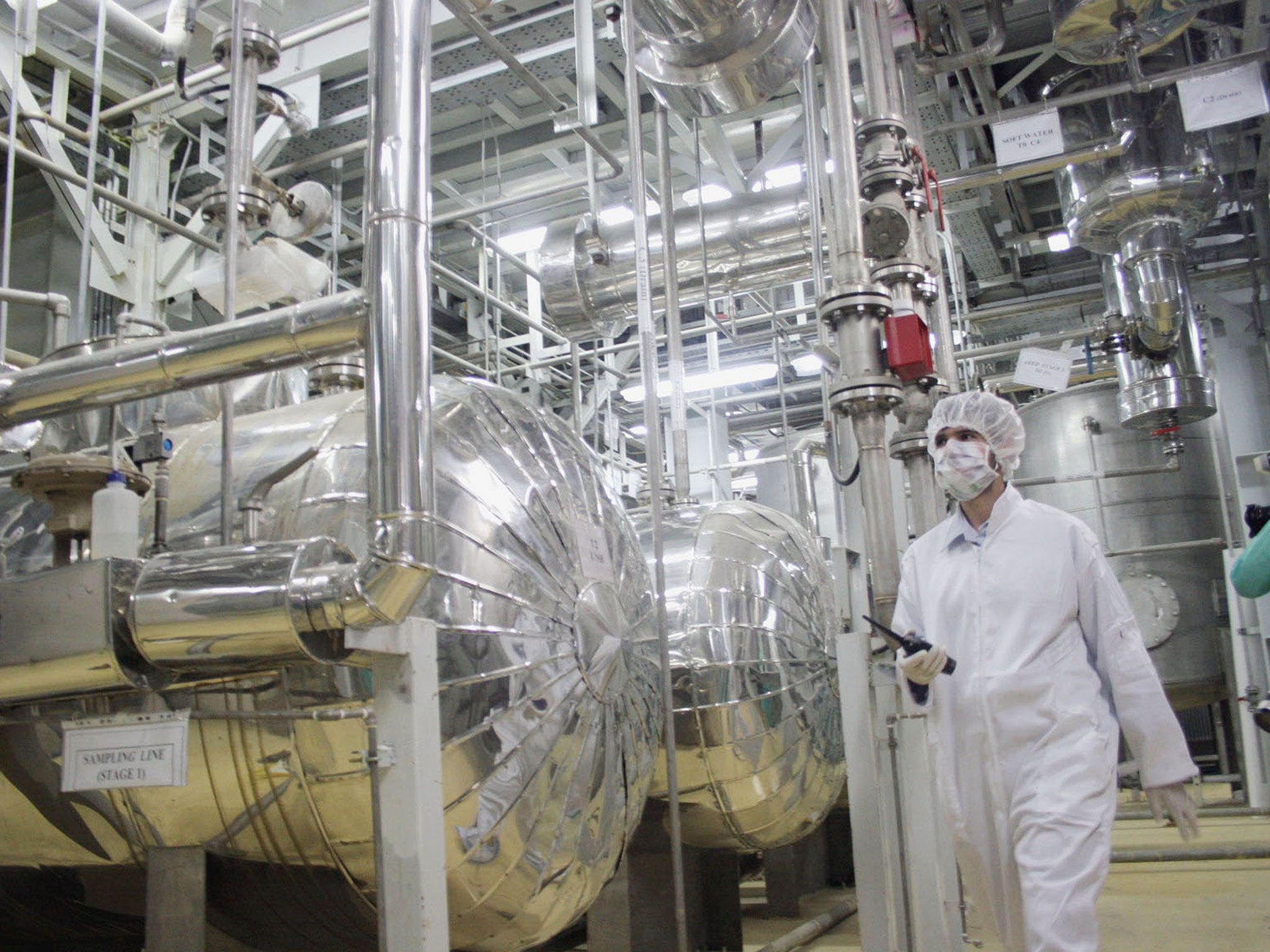Forget Isis, it's Iran’s push for nuclear weapons that could herald the end of the world
What is at stake in the negotiations is the risk of setting off a nuclear domino effect across the Middle East

Your support helps us to tell the story
From reproductive rights to climate change to Big Tech, The Independent is on the ground when the story is developing. Whether it's investigating the financials of Elon Musk's pro-Trump PAC or producing our latest documentary, 'The A Word', which shines a light on the American women fighting for reproductive rights, we know how important it is to parse out the facts from the messaging.
At such a critical moment in US history, we need reporters on the ground. Your donation allows us to keep sending journalists to speak to both sides of the story.
The Independent is trusted by Americans across the entire political spectrum. And unlike many other quality news outlets, we choose not to lock Americans out of our reporting and analysis with paywalls. We believe quality journalism should be available to everyone, paid for by those who can afford it.
Your support makes all the difference.With David Cameron’s decision to invest the stretched UK defence budget on drones to fight Islamic State (Isis), the threat posed by the Islamist caliphate is attracting global attention. But as horrific as their atrocities are, it is conceivable that Isis will turn out to have been little more than a traumatic blip in world history.
Iran’s push for nuclear weapons, by contrast, could mark the start of a much more dangerous chain of events that - in the worst version of any number of cataclysmic scenarios - wouldn’t so much feature on the historical record as herald its end.
What is at stake in the negotiations over Iran’s nuclear capability is not simply the question of whether the country will be allowed to inch ever closer to holding weapons, but rather the risk of setting off a nuclear domino effect across the Middle East, where every autocratic and jittery regime determines that it too must have nuclear weapons.
Given this nightmarish vision might not reach full fruition for at least another generation, it’s hard for people to keep the Iranian threat in full view. The horrors of Islamic State are just so much more immediate, and yet even there, Western politicians have managed to mount no more than a token response.
Perhaps this is the Iranian strategy: to drag this whole process out for so long that we eventually lose the ability to care about the exact level of enriched uranium being stockpiled. And then, when we are all distracted with the next Assad- or Putin-generated crisis, the Iranians will choose to quietly cross the point of no return in their meandering advance towards nuclear armament.
For politicians, “Iran fatigue” set in long ago. They have been trying to find a peaceful solution to the Iranian nuclear problem ever since it was first discovered that Iran was in breach of the Non-Proliferation Treaty back in 2002. From the moment he was sworn into office, US president Barack Obama has tried to make dismantling Iran’s vast nuclear infrastructure into his legacy issue.
This latest round of negotiations has dragged on inconclusively since 2013. There have been numerous extensions and missed deadlines. The ultimate deadline was supposed to have been 30 June - but now we’re in yet another extension.
For its part, Iran has insisted it wants to explore nuclear technology for exclusively peaceful purposes. But Iran has never provided international atomic inspectors with an explanation regarding the ample evidence that the country had a nascent weapons programme. Nor can anyone really explain why so much of Iran’s existing nuclear infrastructure appears to have been designed for manufacturing weapons grade uranium and plutonium.
None of this is to suggest that, if Iran went for nuclear breakout tomorrow, the mainland United Kingdom would be under immediate threat from a direct strike. But most people feel that the politics of the Middle East is already dangerous and unpredictable enough, without triggering a nuclear arms race in one of the most volatile parts of the world.
If we allow Iran to hold nuclear weapons then the entire international system for preventing proliferation will disintegrate. After that, we will be returned to living with the daily prospect of the kind of nuclear catastrophe that will make events like the Cuban missile crisis look like a lot of fuss about nothing.
Join our commenting forum
Join thought-provoking conversations, follow other Independent readers and see their replies
Comments